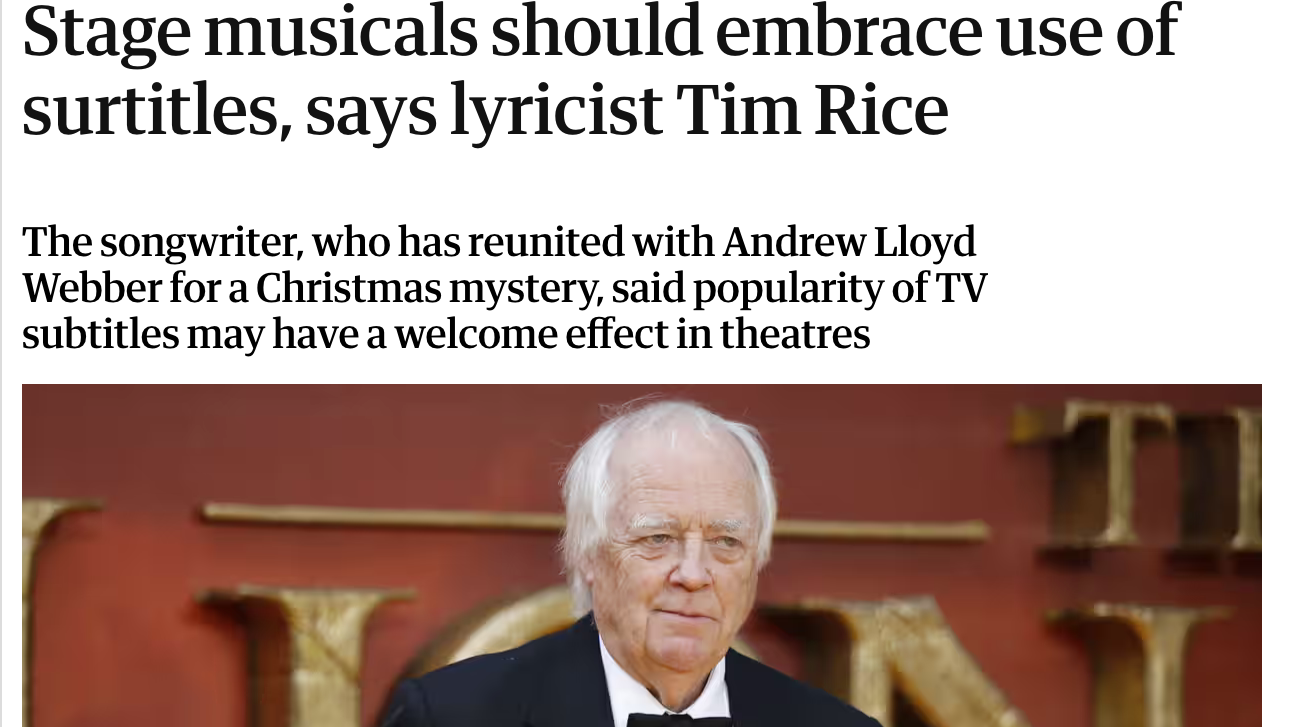We were pleased to see lyricist Tim Rice calling for captions and subtitles to be more commonplace on stage in a recent article with The Guardian.
In particular, the study he referenced was one commissioned by Stagetext that found that 80% of viewers aged 18 to 25 commonly have them [subtitles] switched on all or part of the time.
His comment that “Maybe there’s a new generation coming up which would welcome surtitles in theatres,” is also backed up by our research that shows that that 77% of the UK population is in favour of venues offering more captioned performances to deaf, deafened and hard of hearing audiences [1] and that if more captioning was offered by live venues, a third (31%) of the general public would be more likely to increase their attendance at live shows.
Furthermore, this is also supported by Indigo Ltd and Spektrix’s Tomorrow’s Audience report that revealed more than a third of under 35 new-to-arts audiences would welcome additions to performances to improve inclusivity, especially captions.
For those that aren’t aware, surtitles are similar to subtitles or captions – but are usually provided for opera and plays performed in foreign language – and are English translations of what’s being said on stage rather than being verbatim text.
In principle, I agree with Tim Rice and whilst he talks of surtitles for songs, what about the dialogue? For 25 years Stagetext have been delivering captions in theatres throughout the UK. Sir Tim Rice, we’ve been captioning your shows since 2000, Chess, Evita, and Jesus Christ Superstar, both in the West End and regionally.
Now isn’t the time to go through all the differences of surtitles, subtitles and captions but I would say that if you add deaf accessible captions to your performances you are reaching a wide audience of beneficiaries i.e. deaf, deafened and hard of hearing, people who use English as an additional language or people who are neurodivergent. The wider you cast the net of accessibility the more seats are filled. I’d like to end this with a quote from someone who found captions to be life changing:
“At my first captioned show of Blood Brothers it was life changing as I was able to laugh in time with others, follow the plot and even know the names of characters! All venues from the arts and theatre industry have a wonderful opportunity to embrace access and change our lives by enabling captions.
“Through Stagetext and captions I get to experience the passion and beauty of the people on stage devoting themselves to the art. It may not seem much to others, but captions are much more than just words. They bring the magical world of theatre to me and enhance my experience.” Michelle, caption user.
Sophie Ede, Co-Chair – Board of Trustees



